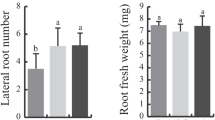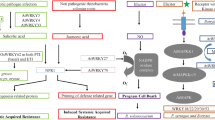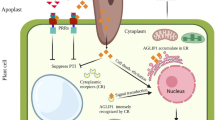Abstract
Ras is a low-molecular-weight guanine nucleotide (GDP/GTP)-binding protein that transduces signals for growth and differentiation in eukaryotes. In mammals, the importance of Ras in regulating growth is underscored by the observation that activating mutations in ras genes are found in many animal tumors. Colletotrichum trifolii is a filamentous fungal pathogen of alfalfa which causes anthracnose disease. To investigate signaling pathways that regulate growth and development in this fungus, a gene encoding a Ras homolog (CT-Ras) was cloned from C. trifolii. CT-Ras exhibited extensive amino acid similarity to Ras proteins from higher and lower eukaryotes. A single amino acid change resulting in mutationally activated CT-Ras induced cellular transformation of mouse (NIH 3T3) fibroblasts and tumor formation in nu/nu mice. In Colletotrichum, mutationally activated CT-Ras induced abnormal hyphal proliferation and defects in polarized growth, and significantly reduced differentiation in a nutrient-dependent manner. These results show that C. trifolii Ras is a functional growth regulator in both mammals and fungi, and demonstrate that proper regulation of Ras is required for normal fungal growth and development.
Similar content being viewed by others
Author information
Authors and Affiliations
Additional information
Received: 20 October 1998 / Accepted: 23 April 1999
Rights and permissions
About this article
Cite this article
Truesdell, G., Jones, C., Holt, T. et al. A Ras protein from a phytopathogenic fungus causes defects in hyphal growth polarity, and induces tumors in mice. Mol Gen Genet 262, 46–54 (1999). https://doi.org/10.1007/s004380051058
Issue Date:
DOI: https://doi.org/10.1007/s004380051058




